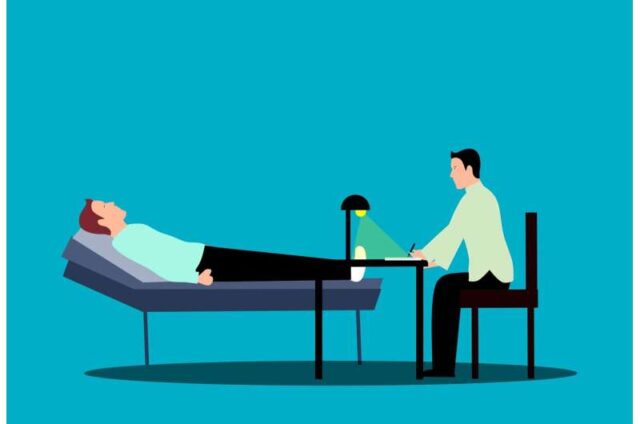Many adults and children may find it difficult to use public restrooms, or the facilities at a friend or neighbor’s home. Thoughts, fears, or worries of being judged, humiliated, or embarrassed result in the tightening of the sphincter and bladder muscles in a sympathetic nervous system response. These involuntary responses make it quite literally impossible to go, until they relax. This is commonly known as “shy bladder,” or medically known as paruresis. Chances are that this “pee-phobia” has happened to you, or someone you know, on occasion. It is common to have felt self-conscious about having someone else overhear your business in the restroom, from time to time. For most people, this occasional performance difficulty is not an on-going problem and self-help tips remedy the concern, such as:
- Let the faucet run
- Flush the toilet prior to using
- Use a stall rather than a urinal
- Use deep, controlled breathing
- Engage your inner yogi to keep a calm mind
If this is a consistent, or on-going concern for you, you are in good company. Paruresis is generally ranked second, only to public speaking, as a social phobia. It can affect any gender, any race, and affects young people and adults. The symptoms of paruresis can become extreme where mere thoughts of using a public restroom become extremely distressing, evoking a sense of panic or fear, trembling or shaking, sweating, rapid heartbeat, crying, freezing, and tantrums. Compensation behaviors and changes in routines can be extreme and time-consuming in avoidance. Schedules, work opportunities, school placements, social opportunities, relationships, and physical health can all be negatively impacted when symptoms run unchecked. Severe cases involve only being able to urinate when at home under specific conditions, or the need of a catheter.
According to the DSM-5, social anxiety disorders in the United States have a median onset age of 13, and an overwhelming majority, 75%, have onset of symptoms between the ages of 8 and 15 years (APA, 2013). Paruresis is a type of social anxiety, and typically onset begins at school. This onset is frequently associated with a real or imagined negative experience.
Some common behaviors in attempts to avoid using public restrooms, include:
- Limiting intake of fluids
- Holding urine for extended hours
- Locating and only using single-person restrooms
There is professional help available that may dramatically improve function and reduce anxiety. Psychotherapy methods that are successful in treating paruresis and social anxiety disorders include:
Cognitive Behavioral Therapy (CBT), which explores thoughts, feelings, and behaviors can assist in reducing the fear response and reduce anxiety.
In addition to CBT, Systematic Desensitization and Exposure Therapy (SDET) can assist someone in improved public restroom use through small, measured steps toward reducing avoidance of the feared situation.
Eye Movement Desensitization and Reprocessing (EMDR) can assist in reprocessing negative experiences of the past, desensitization of the feared situation, and reduce overall anxiety.
If you have been avoiding social situations, or endure them with distress, due to worry and fear of having to use the public restroom, treatment is available. If you worry about an event weeks in advance, perhaps even experiencing a panic attack in anticipation, or if you have been limiting your social experiences, there is help. It is always advised to have a medical screening with your physician to rule out physiological concerns, then consider psychotherapy to regain your confidence and explore your world.
About the Author
AnnMarie Nelson, LMFT 97177 offers in-person psychotherapy from her office in beautiful Mission Viejo, California, and web services for those who reside in California. She specializes in treating trauma, PTSD, anxiety, depression, and life transitions such as death and divorce. She treats children and adults to regain social opportunities and reduce social anxiety, including paruresis. Her office welcomes your call at 949.445.0510.



